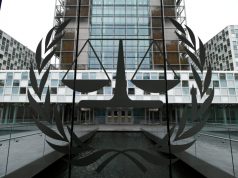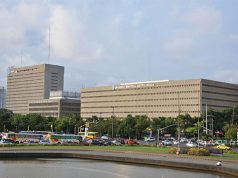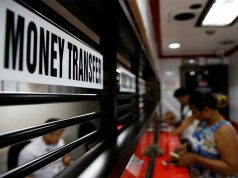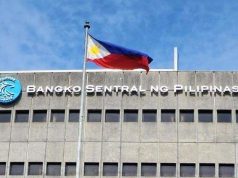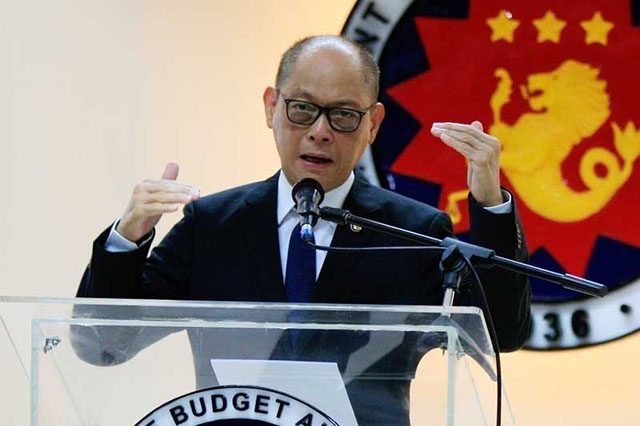
The appointment of Benjamin Diokno as governor of the Bangko Sentral ng Pilipinas broke the tradition of choosing a central bank insider similar to his predecessors.
President Rodrigo Duterte appointed Diokno on March 4 over a week after former governor Nestor Espenilla Jr. died of cancer. Diokno will complete Espenilla’s six-year term.
This came as a surprise to several bankers and fund managers because Diokno was not among the three deputy governors and other bankers tipped to be promoted and take Espenilla’s place.
The previous contenders are Maria Almasara Cyd Tuaño-Amador, Diwa Guinigundo and Chuchi Fonacier as well as Monetary Board member Peter Favila and bankers Nestor Tan of BDO Unibank, Antonio Moncupa of EastWest Bank, and Cezar Consing of Ayala-led Bank of the Philippine Islands.
Choosing a banker or a BSP board member to be at the helm has been a tradition at the monetary authority for many years.
Espenilla served at the central bank for three decades before being chosen as its governor in July 2017.
Similarly, his predecessor Amando Tetangco Jr. also worked for the bank for three decades before leading it for two terms since 2005.
Some bankers reacted differently with this change given that Diokno, also the secretary of the Department of Budget and Management, is considered an “outsider” in the banking community.
Ruben Carlo Asuncion, chief economist at the Union Bank of the Philippines, said that Diokno will have to make some adjustments to learn the inner workings of the BSP.
“An outsider will almost always have to learn the ropes first, as they say. However, this may also be positive with someone coming in with different inputs and ways of doing things. As Diokno takes the helm of the BSP, I think the markets would want to hear continuity — continuity to the next level,” Asuncion said.
Meanwhile, the Bankers Association of the Philippines was optimistic.
“A respected economist, academic, and civil servant, Diokno spearheaded various budget and governance reforms which improved the efficiency of the delivery of government services in the country,” BAP said.
Diokno now heads the seven-man monetary board, including Duterte’s ally Finance Secretary Carlos Dominguez.
Other members are Felipe M. Medalla, Juan De Zuniga, Jr., Peter B. Favila, Antonio S. Abacan, Jr., and V. Bruce J. Tolentino.
Malacañang also expressed confidence on Diokno’s competency to his new position.
“We have a good man there, we have an experienced man, we have an expert man, we have a man of integrity,” Presidential Spokesperson Salvador Panelo said.
Diokno has been part of the economic team tasked to deliver Duterte’s ambitious $180 billion infrastructure plan, one of the president’s major platforms.
He has a master’s degree in public administration and economics at UP, and a doctorate in economics at the Maxwell School of Citizenship and Public Affairs, Syracuse University in New York.
What experts have to say
Some experts perceived that Diokno’s upcoming leadership may be a way to politicize BSP.
Capital Economics, a UK-based think tank, cited Diokno being a close ally of the president to be the reason for a possible loss of market confidence.
“His appointment is being seen as a move to free up the position of budget secretary for a Duterte ally,” it said.
“There is a risk that markets ultimately become less confident in the BSP’s independence and willingness to tackle inflation and financial risks,” it added.
The firm still remained positive that the new governor is capable of maintaining BSP’s credibility and independence.
“It is still too early to say whether Gov. Diokno will be able to maintain the BSP’s credibility as a well-run and independent central bank. But the news does add to the catalogue of evidence that Duterte is willing to break norms and politicize political institutions. We continue to see the risk of a further slide backwards in governance in the Philippines, which would weigh on investment and growth,” it said.
An economist from the University of Asia and the Pacific also echoed that Diokno can be seen as “politically tainted.”
“Well, Diokno is technically competent and an excellent professional. He’s a good choice but the market may perceive him as politically tainted by allegations of corruption by the opposition,” said University of Asia and the Pacific economist Cid Terosa.




